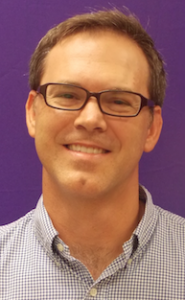
1. What are some of your favorite things about North Carolina?
BBQ (only eastern NC), Cheerwine, Krispy Kreme, steamed winter oysters, cover dish on Sunday, the smell of freshly dug peanuts in the fall, hunting and fishing, the coast, the mountains, most places in between the coast and mountains, family and friends, and no matter where I’ve gone or for how long, it has always remained home
2. As a specialist in environmental and earth science, what do wish everyone knew about Earth?
How to engage in environmentally responsible behaviors, while supporting economic growth/sustainability, because that is going to be one of the biggest challenges the next few generations will face.
3. In your view, what are the top environmental challenges we face on Earth? How might we overcome those challenges?
Climate change effects, global availability of potable water, fate and transport of toxicants… I don’t think ignorance is part of the solution, so from that perspective I feel strongly that STEM education is a critical part of the answer, but not the whole answer. Knowing what’s good for you and doing it are two different things, which is why I’m drinking a cherry pepsi right now.
4. Drawing on your experience as a science educator, what should students in K-12 schools learn about science?
What science is, how science operates, and authentically integrated STEM content.
First, understanding the nature of science (i.e. what science is and how it operates) is critical because it means the difference between only seeing science as set of disparate facts that help you win Jeopardy in your living room and seeing science as a specific way of knowing. Understanding the tenets of science and what characteristics make it unique from other ways of knowing helps people understand and act on the strengths and limitations of science in informed ways in both their personal lives and at the ballot box. Secondly, authentically integrated STEM content is important because practitioners rarely, if ever, function within a single domain. Students sense this based in part on their own experiences outside of school and that’s why many often feel that science education in school is stale and disconnected from the real world… their world. Placing science content learning in the context of authentic questions or challenges generates student interest, motivation, and learning.
5. What fundamental technical skills do you recommend budding scientists acquire?
In general, the technical skills associated with a practical knowledge and application of mathematics and statistics and the ability to fix and/or make stuff
More specifically, the technical skills associated with (1) a practical knowledge and application of mathematics and statistics, such as use of computer-based statistical packages; and (2) the ability to fix and/or make stuff, which involves use of hand tools and fabrication equipment (e.g., 3D printers, CNC mill, MIG/TIG welding), CAD, electronics, and coding. These are the new skills that are needed as STEM domains and disciplines continue to become increasingly sophisticated mash-ups, including fields such as biomedical engineering, mechatronics, marine geochemistry and the like.
Communication skills are tantamount to these other technical skills. Many scientists have important insights to share with the public, but if they are unable to do so, all their hard work is effectively diminished. Scientists must now understand and use emergent forms of communication as well as thinking about old forms of communication in new ways as they disseminate their work.
6. What knowledge, skills, and attitudes should a science educator possess?
Knowledge and skills . . . as many as possible, in as many STEM and non-STEM areas as possible. The more informed and well rounded the science educator, the better he or she can effectively communicate with others from diverse backgrounds. Attitudes . . . care, compassion, and empathy.
7. Why do you value education so much?
I see it as a practical extension of hope. If you hope that things will be better, you should do something about it. To do something, you have to know what to do. In order to know what to do… education.